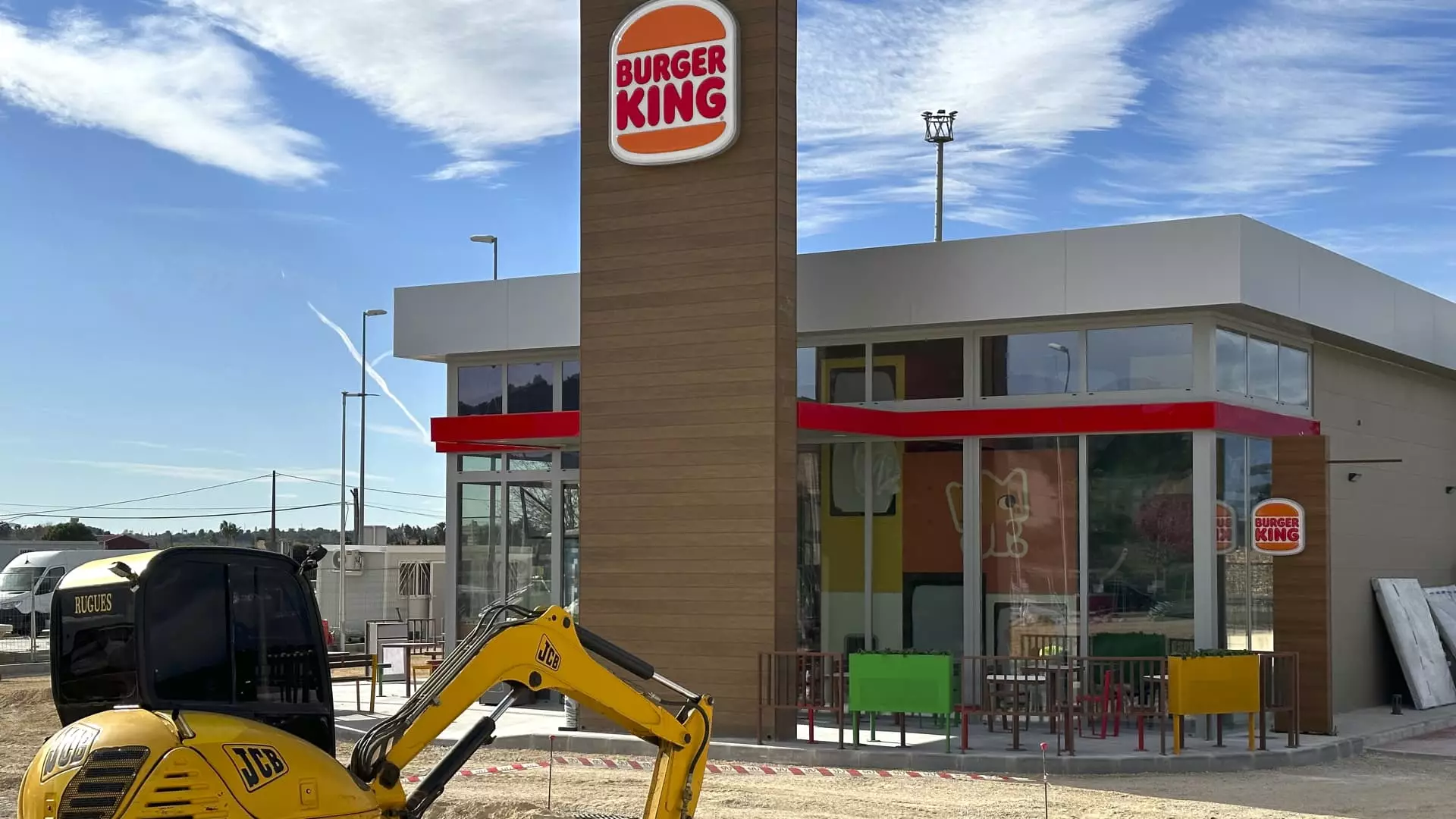Restaurant Brands International (RBI), the parent company of several well-known fast-food franchises, including Burger King, Popeyes, and Tim Hortons, recently released its third-quarter earnings, which fell short of Wall Street expectations. The results indicated a concerning trend in same-store sales growth across its flagship brands. In the wake of this announcement, RBI’s shares experienced a decline of approximately 2% during early trading hours. As the company continues to navigate a challenging marketplace, it raises significant concerns regarding its operational strategies and long-term growth potential.
Discrepancies in Earnings and Revenue Expectations
In the third quarter, RBI reported adjusted earnings per share of 93 cents, slightly below the analysts’ predictions of 95 cents. Furthermore, the company generated $2.29 billion in revenue, which also did not meet the expectations set at $2.31 billion. The overall growth in same-store sales was reported at a modest 0.3%, which showcases a stark contrast to the anticipated performance. The disheartening results stemmed primarily from notable declines in same-store sales for Burger King, Popeyes, and Firehouse Subs within their key markets, raising questions about consumer engagement and brand loyalty.
Chain-Specific Challenges
Burger King, which has been undergoing a significant turnaround strategy, experienced a same-store sales drop of 0.7% during the quarter. Analysts had expected a flat performance, indicating that the brand’s recovery strategy requires recalibration. In addition to internal restructuring efforts, external factors such as diminished consumer spending at restaurants have reignited competitive pricing tactics among burger chains. CEO Josh Kobza highlighted these challenges during the earnings call, noting that consumer spending weakened over the summer, prompting a renewed focus on value-driven promotions.
Popeyes and Firehouse Subs reported declines in same-store sales of 4% and 4.8% respectively. Both chains are struggling to attract customer traffic despite recent promotional efforts highlighting value offerings. Specifically, Popeyes has actively marketed its three-piece chicken meal at a competitive price point, but the expected increase in sales has yet to materialize. Firehouse Subs, the newest addition to RBI’s portfolio, is grappling with maintaining its early momentum and brand recognition against larger competitors, which can overshadow its marketing messages.
In contrast to the setbacks faced by other brands, Tim Hortons exhibited resilience with a modest same-store sales growth of 2.3%. However, this too fell short of the anticipated 4.1%, indicating that even the strongest brand within RBI’s portfolio is not immune to fluctuations in consumer preferences and market dynamics. Enhancements in traffic and service speed were credited for this performance, yet the underperformance in the broader context suggests that more comprehensive strategies may be necessary to ensure sustained growth across all brands in the coming quarters.
In light of these performances, RBI has moderated its projections for system-wide sales growth from a previous estimate of 5.5% to 6% down to a revised range of 5% to 5.5%. This reduction reflects a cautious approach amid challenging market conditions and fluctuating consumer habits. CEO Kobza expressed optimism for the forthcoming quarter, citing promising trends in October that indicate a positive shift with low-single-digit growth in same-store sales—an improvement over the preceding quarter.
The support from improved consumer sentiment, partly driven by lower gas prices and moderating inflation, suggests that there is potential for recovery in consumer spending patterns. As the organization seeks to navigate through these turbulent times, it would benefit from a more robust analysis of market trends to align its offerings more closely with consumer expectations, particularly in areas such as value and service speed.
Restaurant Brands International’s latest earnings report sheds light on the complexities and challenges facing major fast-food chains today. As market dynamics evolve, RBI must adapt its strategies to enhance customer engagement while capitalizing on emerging opportunities across its varied portfolio. Only through strategic realignment, thoughtful promotional efforts, and a keen focus on consumer preferences can RBI hope to reclaim its status in the competitive fast-food landscape.

